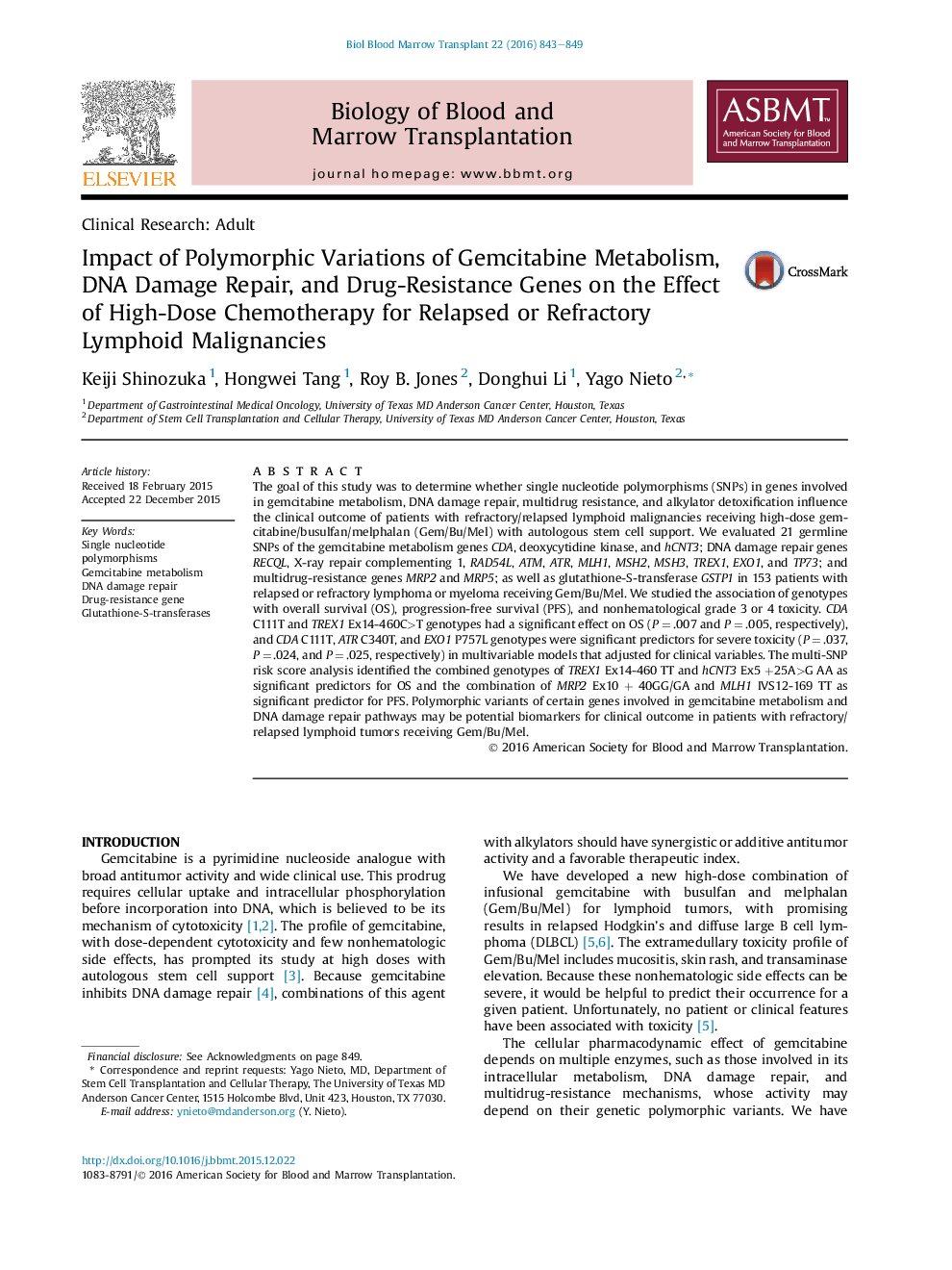| Article ID | Journal | Published Year | Pages | File Type |
|---|---|---|---|---|
| 2101482 | Biology of Blood and Marrow Transplantation | 2016 | 7 Pages |
•This prospective study shows that polymorphic variants of enzymes involved in gemcitabine metabolism, DNA damage repair, and multidrug-resistance pathways are associated with outcome and severe toxicity in patients with refractory/relapsed lymphoma or myeloma receiving high-dose chemotherapy with gemcitabine/busulfan/melphalan•These findings suggest the value of pharmacogenomics in stratifying patients for individualized high-dose cancer therapy
The goal of this study was to determine whether single nucleotide polymorphisms (SNPs) in genes involved in gemcitabine metabolism, DNA damage repair, multidrug resistance, and alkylator detoxification influence the clinical outcome of patients with refractory/relapsed lymphoid malignancies receiving high-dose gemcitabine/busulfan/melphalan (Gem/Bu/Mel) with autologous stem cell support. We evaluated 21 germline SNPs of the gemcitabine metabolism genes CDA, deoxycytidine kinase, and hCNT3; DNA damage repair genes RECQL, X-ray repair complementing 1, RAD54L, ATM, ATR, MLH1, MSH2, MSH3, TREX1, EXO1, and TP73; and multidrug-resistance genes MRP2 and MRP5; as well as glutathione-S-transferase GSTP1 in 153 patients with relapsed or refractory lymphoma or myeloma receiving Gem/Bu/Mel. We studied the association of genotypes with overall survival (OS), progression-free survival (PFS), and nonhematological grade 3 or 4 toxicity. CDA C111T and TREX1 Ex14-460C>T genotypes had a significant effect on OS (P = .007 and P = .005, respectively), and CDA C111T, ATR C340T, and EXO1 P757L genotypes were significant predictors for severe toxicity (P = .037, P = .024, and P = .025, respectively) in multivariable models that adjusted for clinical variables. The multi-SNP risk score analysis identified the combined genotypes of TREX1 Ex14-460 TT and hCNT3 Ex5 +25A>G AA as significant predictors for OS and the combination of MRP2 Ex10 + 40GG/GA and MLH1 IVS12-169 TT as significant predictor for PFS. Polymorphic variants of certain genes involved in gemcitabine metabolism and DNA damage repair pathways may be potential biomarkers for clinical outcome in patients with refractory/relapsed lymphoid tumors receiving Gem/Bu/Mel.
